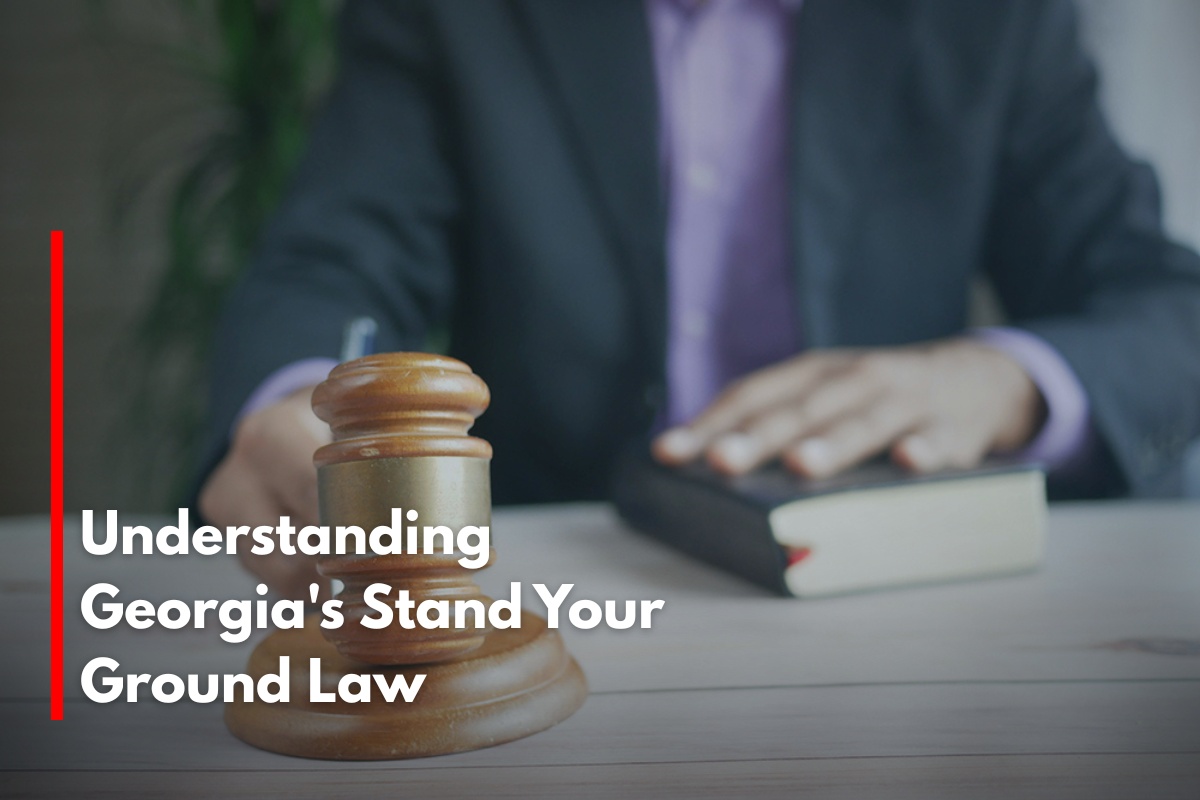Georgia’s Stand Your Ground law is a significant part of the state’s self-defense statutes. It allows individuals to protect themselves, others, or their property without having to retreat, under certain conditions. This law has generated much discussion and can be an essential tool for self-defense, but it’s important to understand how it works and its limitations to avoid legal complications.
What the Law Says
No Duty to Retreat:
Under Georgia’s Stand Your Ground law, if you are lawfully present in a location, whether that’s your home, workplace, public place, or any area where you have a legal right to be, you are not required to retreat before using force in self-defense. This includes situations where deadly force may be necessary, especially if you’re facing an imminent threat of death or serious bodily harm.
Reasonable Belief:
The use of force, including deadly force, must be based on a reasonable belief that it is necessary to prevent death, serious injury, or a violent crime such as robbery or assault. This means that the person using force must truly believe they are in danger and that using force is the only way to protect themselves.
Defense of Others and Property:
Not only can you defend yourself, but the law also extends to defending others and, in some situations, property. However, the belief that the use of force is necessary must be reasonable. For example, if you are defending someone else from harm, you must have a justifiable reason for doing so.
Key Provisions and Limitations
Proportional Force:
While the law allows for the use of force, the force used must be proportional to the threat faced. Deadly force is only considered justified if it is necessary to prevent serious injury or death. You cannot use excessive force in situations where less force would have sufficed.
Who Cannot Claim Stand Your Ground:
There are certain individuals who cannot claim Stand Your Ground protection. These include:
Initial Aggressors: Individuals who start the confrontation cannot claim Stand Your Ground unless they have attempted to withdraw from the situation and communicated that intent to the other party.
Felony Offenders: People who are committing or fleeing from a felony at the time of the incident cannot invoke the law’s protections.
Provoking a Confrontation: You cannot provoke a confrontation intentionally and then claim self-defense with deadly force.
Legal Process
If you claim self-defense under Georgia’s Stand Your Ground law, the prosecution must prove beyond a reasonable doubt that your use of force was unjustified. Georgia law also allows for pre-trial immunity hearings, where a judge can dismiss charges if they find that the use of force was lawful self-defense. These hearings give individuals the opportunity to avoid a lengthy trial if their actions are deemed justified.
Stand Your Ground vs. Castle Doctrine
Castle Doctrine:
The Castle Doctrine is a more specific law that applies solely to situations where an individual defends their home, vehicle, or property. It allows a person to use force, including deadly force, if they believe it is necessary to protect themselves in their home.
Stand Your Ground:
While the Castle Doctrine is limited to your home or property, Stand Your Ground extends the right to use force to any place where you are lawfully allowed to be. In other words, you are not required to retreat in public places, workplaces, or any location where you have a legal right to be.
Practical Implications
The law offers legal protection against both criminal prosecution and civil liability if the use of force is deemed justified. However, misuse or a misunderstanding of the law can result in serious legal consequences, including criminal charges if the force used is deemed unreasonable or if you were the aggressor. It’s important to understand the law’s limits and responsibilities to avoid unnecessary legal issues.
Summary Table
| Principle | Georgia Stand Your Ground Law |
|---|---|
| Duty to Retreat | No duty to retreat if lawfully present |
| Where It Applies | Anywhere you have a legal right to be |
| Type of Force Allowed | Reasonable force, including deadly force if justified |
| Who Is Protected | Self, others, sometimes property |
| Key Limitations | Not for initial aggressors or during commission of a felony |
Georgia’s Stand Your Ground law is designed to empower individuals to protect themselves, their loved ones, and their property. However, it’s essential to understand the law’s nuances and limitations.
Knowing when and how it applies can ensure that your actions are lawful and justified in self-defense situations, avoiding unnecessary legal complications. Always remember, the force you use must be reasonable and proportional to the threat you face.
Sources
[1] https://www.georgiacriminallawyer.com/stand-your-ground
[2] https://www.atlantanotguilty.com/blog/what-happens-if-you-kill-someone-in-self-defense-in-georgia/
[3] https://www.thecastolawfirm.com/blog/georgias-stand-your-ground-law/
[4] https://www.findlaw.com/state/georgia-law/georgia-self-defense-laws.html
[5] https://www.finduslawyers.org/understanding-georgias-stand-your-ground-law-what-you-need-to-know/











